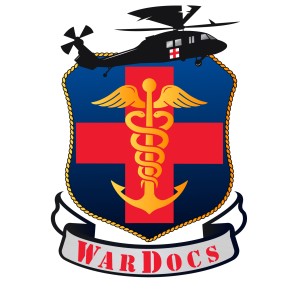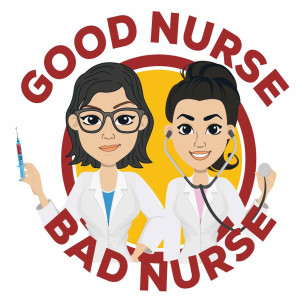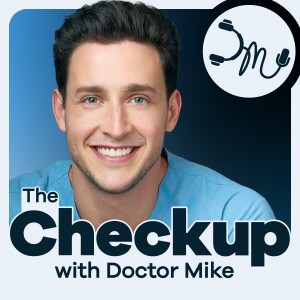

Combat Neurosurgery: Expert Insights on Managing Head Trauma and Surgical Techniques While Deployed-LTC Ryan Morton, MD.
Army neurosurgeon LTC Ryan Morton, MD, joins us for a compelling discussion on the high-stakes environment of combat neurosurgery. We delve into the strategies crucial for managing head trauma on the battlefield, where preventing hypoxia and hypotension is paramount for saving lives. Dr. Morton shares invaluable insights on how military medical teams maintain vigilance against these conditions despite the lack of advanced imaging capabilities. From arterial blood pressure monitoring to oxygen therapy, we cover the proactive measures used to manage intracranial pressure effectively, ensuring that even in the toughest settings, soldiers receive the best possible care.
Our conversation evolves into a detailed exploration of the surgical techniques employed in trauma response. We discuss the significance of patient positioning, the careful balancing of resuscitation efforts, and the pivotal role of Roll 3 hospitals with their advanced CT scanning capabilities. The episode also shines a light on the logistical aspects of performing complex procedures like spine surgeries and managing traumatic vasospasm in military environments. Dr. Morton touches on the challenges of treating severe injuries in combat zones and the thoughtful considerations involved in using endovascular techniques for managing carotid injuries. Join us for an episode packed with expert insights and real-world solutions for the unique challenges faced in military medical care.
Chapters:
(00:02) Combat Neurosurgery
(11:14) Surgical Techniques in Trauma Response
(17:18) Combat Medical Care and Consultation
Chapter Summaries:
(00:02) Combat Neurosurgery
Managing head trauma in combat zones requires vigilance against hypoxia and hypotension, with measures such as blood pressure monitoring and oxygen therapy.
(11:14) Surgical Techniques in Trauma Response
Maintaining brain health in trauma management through proper positioning, blood coagulation, and advanced capabilities of Roll 3 hospitals.
(17:18) Combat Medical Care and Consultation
Logistics of spine fusions, protocols for head trauma, challenges of treating vasospasm, and endovascular techniques for carotid injuries.
Take Home Messages:
- Combat neurosurgery requires a proactive approach to managing head trauma on the battlefield, emphasizing the prevention of hypoxia and hypotension. Despite the lack of advanced imaging capabilities, military medical teams can effectively monitor and manage intracranial pressure through vigilant use of arterial blood pressure monitoring and oxygen therapy.
- Patient positioning, such as using the reverse Trendelenburg position, plays a crucial role in reducing intracranial pressure in trauma cases. Maintaining proper blood coagulation and sodium levels is essential to avoid complications, and the advanced capabilities of Roll 3 hospitals, like CT scanning, are vital for determining the appropriate neurosurgical interventions.
- While immediate spine surgeries may be necessary in combat zones, complex procedures are often preferred to be performed in more sterile environments such as Landstuhl, Walter Reed, or BAMC. These facilities provide the necessary resources and expertise to manage severe injuries and offer comprehensive care.
- The use of seizure prophylaxis, such as Keppra or Dilantin, should be carefully considered in cases of suspected head trauma. However, it is typically not an immediate priority unless the patient is actively seizing. If a severe traumatic brain injury is confirmed, seizure prophylaxis may be beneficial for a limited period.
- Endovascular techniques for managing carotid injuries, such as deploying covered stents or performing balloon test occlusions, require careful consideration and are best performed in well-equipped facilities away from the battlefield. The treatment of traumatic vasospasm, which can occur days after the initial trauma, should be managed in specialized centers to ensure optimal patient outcomes.
Episode Keywords:
combat neurosurgery, military head trauma, battlefield brain surgery, surgical techniques in combat, military medical care, head trauma management, Roll 3 hospitals, military neurosurgeon insights, intracranial pressure management, trauma care in austere settings, endovascular techniques in military, preventing hypoxia and hypotension, trauma surgery in military environments, Lieutenant Colonel Ryan Morton, War Docs podcast
Hashtags:
#MilitaryMedicine #CombatNeurosurgery #BattlefieldTrauma #HeadTraumaCare #MilitarySurgery #NeurosurgeonInsights #CombatMedicalResponse #MilitaryHealthcare #WarDocsPodcast #TraumaSurgery
Honoring the Legacy and Preserving the History of Military Medicine
The WarDocs Mission is to honor the legacy, preserve the oral history, and showcase career opportunities, unique expeditionary experiences, and achievements of Military Medicine. We foster patriotism and pride in Who we are, What we do, and, most importantly, How we serve Our Patients, the DoD, and Our Nation.
Find out more and join Team WarDocs at https://www.wardocspodcast.com/
Check our list of previous guest episodes at https://www.wardocspodcast.com/our-guests
Subscribe and Like our Videos on our YouTube Channel: https://www.youtube.com/@wardocspodcast
Listen to the “What We Are For” Episode 47. https://bit.ly/3r87Afm
WarDocs- The Military Medicine Podcast is a Non-Profit, Tax-exempt-501(c)(3) Veteran Run Organization run by volunteers. All donations are tax-deductible and go to honoring and preserving the history, experiences, successes, and lessons learned in Military Medicine. A tax receipt will be sent to you.
WARDOCS documents the experiences, contributions, and innovations of all military medicine Services, ranks, and Corps who are affectionately called "Docs" as a sign of respect, trust, and confidence on and off the battlefield,demonstrating dedication to the medical care of fellow comrades in arms.
Follow Us on Social Media
Twitter: @wardocspodcast
Facebook: WarDocs Podcast
Instagram: @wardocspodcast
LinkedIn: WarDocs-The Military Medicine Podcast
YouTube Channel: https://www.youtube.com/@wardocspodcast
More Episodes
All Episodes>>You may also like
Create Your Podcast In Minutes
- Full-featured podcast site
- Unlimited storage and bandwidth
- Comprehensive podcast stats
- Distribute to Apple Podcasts, Spotify, and more
- Make money with your podcast











